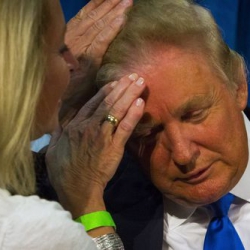Geoff Freeman of the American Gaming Association sent letters to 14 different presidential hopefuls last Thursday, urging them to support the casino gambling industry or lose support. Freeman said the 2016 presidential candidates needed to pay heed to the voters in swing states like Nevada, where the votes could be particularly close in 2016.
2016 Presidential Season
The 2016 U.S. presidential election is expected to be a storm of political action. $5 billion is expected to be spent by the Republicans and Democrats to secure the presidency, along with the 535 seats in the U.S. Congress. The two parties seem evenly-matched, with Hillary Clinton the likely candidate for the Democrats. Over a dozen Republicans have declared their candidacy and, while Hillary is favored by the sportsbooks to win, that is mainly because no one can tell whom the GOP candidate will be yet.
Whoever the candidates are, the presidential vote is likely to be on a razor’s edge. Many people view the 2016 election as particularly pivotal. If the Democrats could win a third term, it might expose the GOP as unable to win national elections with its current brand of conservatism. If the Republicans win, they could reverse many of the policies of the Obama Administration. In that atmosphere, any voting bloc of a million people or so could turn swing the election.
AGA’s Candidate Guide
Mr. Freeman said the AGA is in the process of completing its own presidential candidate guide for the millions of members in its organization. The record of support or antipathy to the casino industry is going to feature prominent in that voting primer.
Freeman wrote, “As we compile a voter guide for [our] employees over the next few months, we plan to include your views of gaming to ensure they have all the information needed to make their decision during the caucuses and on Election Day.”
1.7 Million Voters
In the United States every year, casinos generate $240 billion in revenues. Land casinos create jobs for 1.7 milion Americans, spread over 40 states. Those workers represent a significant voting block and they are often found in swing states.
Casino Donations to Candidates
Beyond the voting bloc, casinos pay billions of dollars in tax revenue each year. These gaming operations are run by business people who pay close attention to the legal and political news about their industry. These businesses have significant lobbying cash, and they know all-too-well that their industries are vulnerable to legislative initiatives in a way non-gaming businesses seldom are.
He pointed out several states which are pivotal in the election cycle which have substantial land-based gaming industries, such as Florida, Pennsylvania, Michigan, and Ohio. Freeman also pointed out Iowa, which holds a statewide caucus which kicks off each primary season. That caucus often takes on a magnified importance to presidential candidates, and Iowa has a well-established gaming industry.
Iowa Gambling Discussions
Geoff Freeman’s letter to the 14 candidates might seem like political posturing, but the American Gaming Association is preparing to take action. The AGA and the Iowa Gaming Association are co-hosting a discussion with Iowa’s local officials and community organizers in the coming weeks. The voting and bureaucratic records of candidates are going to be discussed in those meetings.
Iowa Caucuses
Again, meeting with local officials and community organizers might not have the same weight in other states. In Iowa, the caucus system relies heavily on such people.
Instead of a statewide vote like one would expect in a primary election, the caucus requires citizens to meet locally to “caucus”. Votes are taken inside town halls, auditoriums, and gymnasiums where people divide into groups according to their preferred candidates. Representatives of each candidate try to convince other attendees to vote for their candidate, and having handy facts are known to often sway voters. Once a decision is made, the caucus goes for the candidate with the most support.
The AGA and America’s Electoral System
The United States has a fascinating and sometimes confusing electoral system. Since we use a federal system of government, we have a patchwork of laws and customs which becomes a political minefield for candidates hoping to rise to the top. The idea is to decentralize power, so no one person can control the system and no one interest can dominate the issues.
That does not mean a group of voters cannot have profound influence on an election cycle. In many ways, the United States of the early 21st century is so evenly-balanced between the parties and power centers that a small sliver of moderates and political independents often determine the election. Whichever side makes the centrist and the non-conformists most comfortable tends to win the election. Gamblers can be Republicans or Democrats, but they also tend to be independent in their thought processes. The potential candidates would be wise to note Geoff Freeman’s advice.

